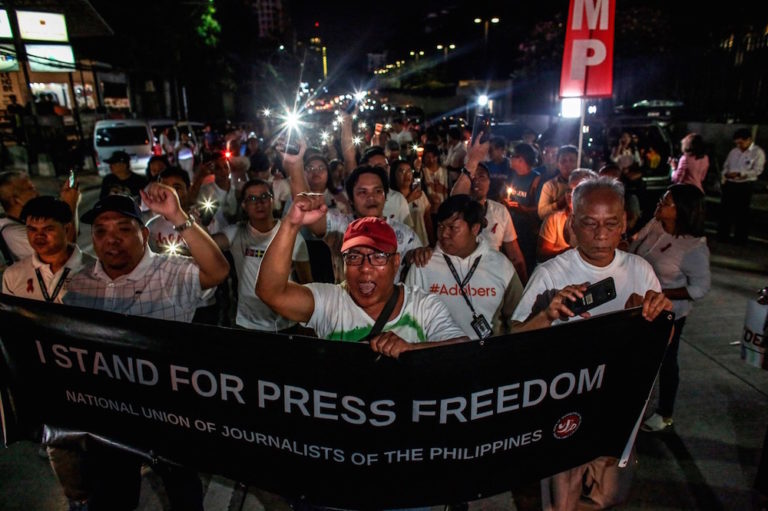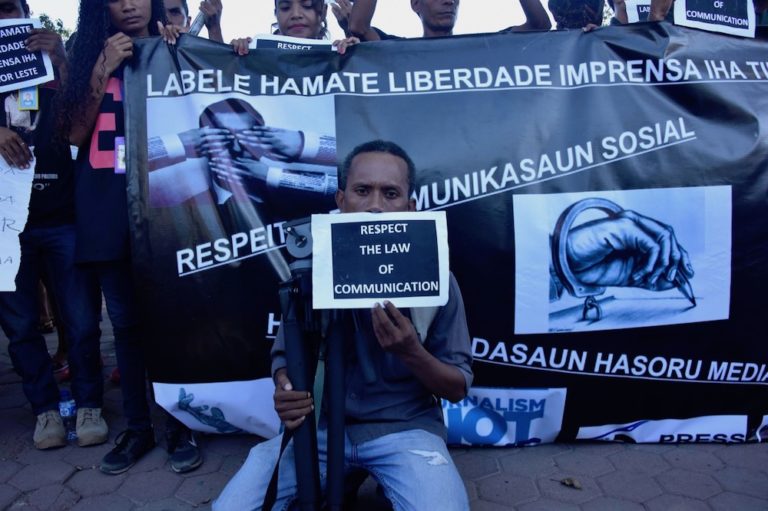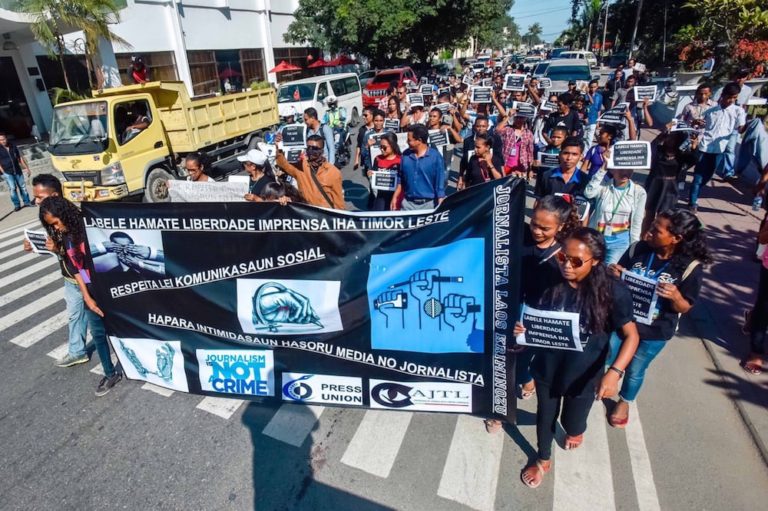(IFJ/IFEX) – The following is a 3 July 2006 IFJ media release: IFJ condemns attack on Radio and Television of East Timor The International Federation of Journalists (IFJ) is shocked at reports of an attack on Radio e Televisao de Timor-Leste (RTTL), the public broadcasting service, on Wednesday June 28, and continued threats on the […]
(IFJ/IFEX) – The following is a 3 July 2006 IFJ media release:
IFJ condemns attack on Radio and Television of East Timor
The International Federation of Journalists (IFJ) is shocked at reports of an attack on Radio e Televisao de Timor-Leste (RTTL), the public broadcasting service, on Wednesday June 28, and continued threats on the station.
According to local reports, a 40-strong anti-government mob attacked the Dili studios forcing the station off the air, in retaliation to RTTL’s broadcasting of ex-Prime Minister Mari Alkatiri’s address to supporters.
“Fear, anger and unrest are fuelled in part by rumour, disinformation and uncertainty – by not knowing who to trust. Protecting independent sources of information like RTTL should be a key part of any stabilisation efforts,” IFJ President Christopher Warren said.
While the station had often received verbal threats in the past, this was the first physical attack on RTTL. The previous evening a threat was received naming four staff members that would be targeted in the attacks. One of those staff had her house attacked and car burned on the same night.
This violence has forced the news director, the chief editor for television and two other staff into hiding. Around 20 staff members in total have lost their homes, or lost everything in their homes, and most of those staff are living at RTTL with their families as Internally Displaced People (IDPs).
Other than President Xanana Gusmao’s speech to the nation, RTTL has shown only a Portuguese visual feed with no local news since the attack.
On Thursday June 29 the station also received angry phone calls protesting the fact RTTL had not aired the rally of Fretilin supporters.
“When journalists can no longer safely cover stories as independent observers, and instead are targeted for doing their job, they become victims of the conflict. This seriously jeopardises the media’s ability to distribute reliably accurate information, which is essential in bringing an end to the unrest in East Timor,” Warren said.
RTTL has reportedly been pleading with Australian security forces for protection for weeks after being threatened by anti-government groups. However, members of the Australian Defence Force did not arrive at the station until June 30, two days after the attacks.
“Protecting crucial institutions such as a public service broadcaster like RTTL should be a priority for Australian forces. The Australian government knows the importance of defending media when democracy is under threat, and after recent attacks on the Timor Post and the Suara Timor Lorosae, more should have been done to prevent the attack on RTTL and its staff,” Warren said.
The IFJ represents over 500,000 journalists in 120 countries.


